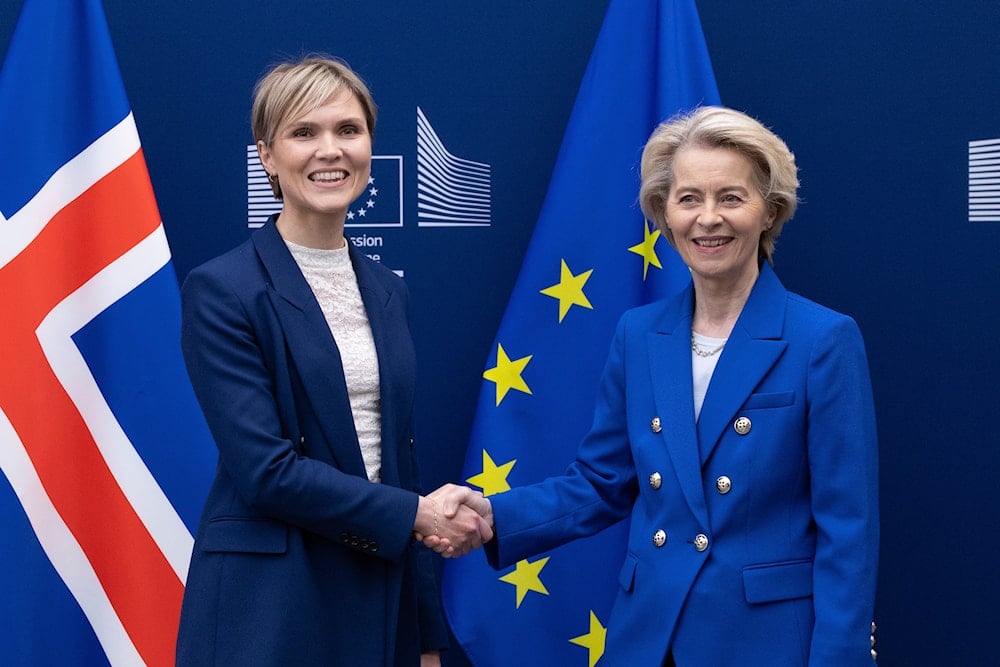Iceland debates defense strategy amid Trump’s Greenland threats
Iceland reviews its defense strategy as Trump’s Greenland ambitions fuel calls for stronger NATO ties and renewed Arctic security discussions.
-

European Commission President Ursula von der Leyen, right, greets Iceland's Prime Minister Kristrun Frostadottir prior to a meeting at the EU headquarters in Brussels, Wednesday, April 9, 2025. (AP)
Icelanders are increasingly engaged in discussions about national defense as concerns rise over US President Donald Trump's threats to annex Greenland. Alongside this, calls to reconsider Iceland’s stalled EU accession talks are gaining momentum, according to The Wall Street Journal.
Prime Minister Kristrun Frostadottir plans to hold a referendum on the EU membership issue by 2027, after addressing what she describes as more immediate national priorities. Some argue, however, that Trump's policies could accelerate the country’s shift toward the EU.
One of the most pressing matters is a comprehensive review of Iceland’s defense strategy. Frostadottir stressed that the public must be involved in shaping this policy, acknowledging that military discussions have historically been uncomfortable or avoided in Iceland.
For years, Iceland and other Nordic nations have sought to prevent the militarization of the Arctic. As this goal becomes less attainable, Iceland must now consider how to strengthen its defense posture. Frostadottir reiterated that while public support for a standing military remains low, the need for active defenses and alliances is growing.
Initially tasked with protecting vital fishing zones, Iceland's coast guard has expanded its role to managing the Keflavik air base and operating key air-defense systems.
These changes reflect Iceland’s evolving role within NATO, where the country has supported alliance missions by deploying medical teams and managing civilian operations, such as Afghanistan’s main airport.
Iceland’s strategic importance in NATO contrasts sharply with Greenland’s situation. Denmark, under pressure from Trump’s administration, has expanded its military presence in Greenland with the islanders’ consent.
Liselotte Odgaard, a senior fellow at the Hudson Institute, highlighted that Greenland’s previous neglect of defense left it vulnerable to external pressures.
Iceland’s EU membership talks resurface amid global tensions
Frostadottir, one of the youngest leaders in the world, leads a social-democratic party that supports EU membership. She emphasized that Icelanders are closely monitoring developments in Greenland due to historical ties, especially as Trump's confrontational policies toward Europe make EU membership more appealing.
Negotiations over Iceland’s accession to the EU have remained on hold since 2013, following the eurozone crisis. Trump’s threats toward Greenland and his broader stance on Europe have unsettled many Icelanders, reigniting interest in aligning more closely with the EU.
Frostadottir, who holds master’s degrees from Yale and Boston University, wants any future referendum on EU talks to remain balanced. She cautioned against using security fears to push for membership, emphasizing the need for a thoughtful and inclusive national conversation.
However, some political figures, like MP Dagur Eggertsson, argue that shifting global dynamics may necessitate bringing forward the referendum on EU accession, particularly as Europe's international role continues to expand.

 3 Min Read
3 Min Read










